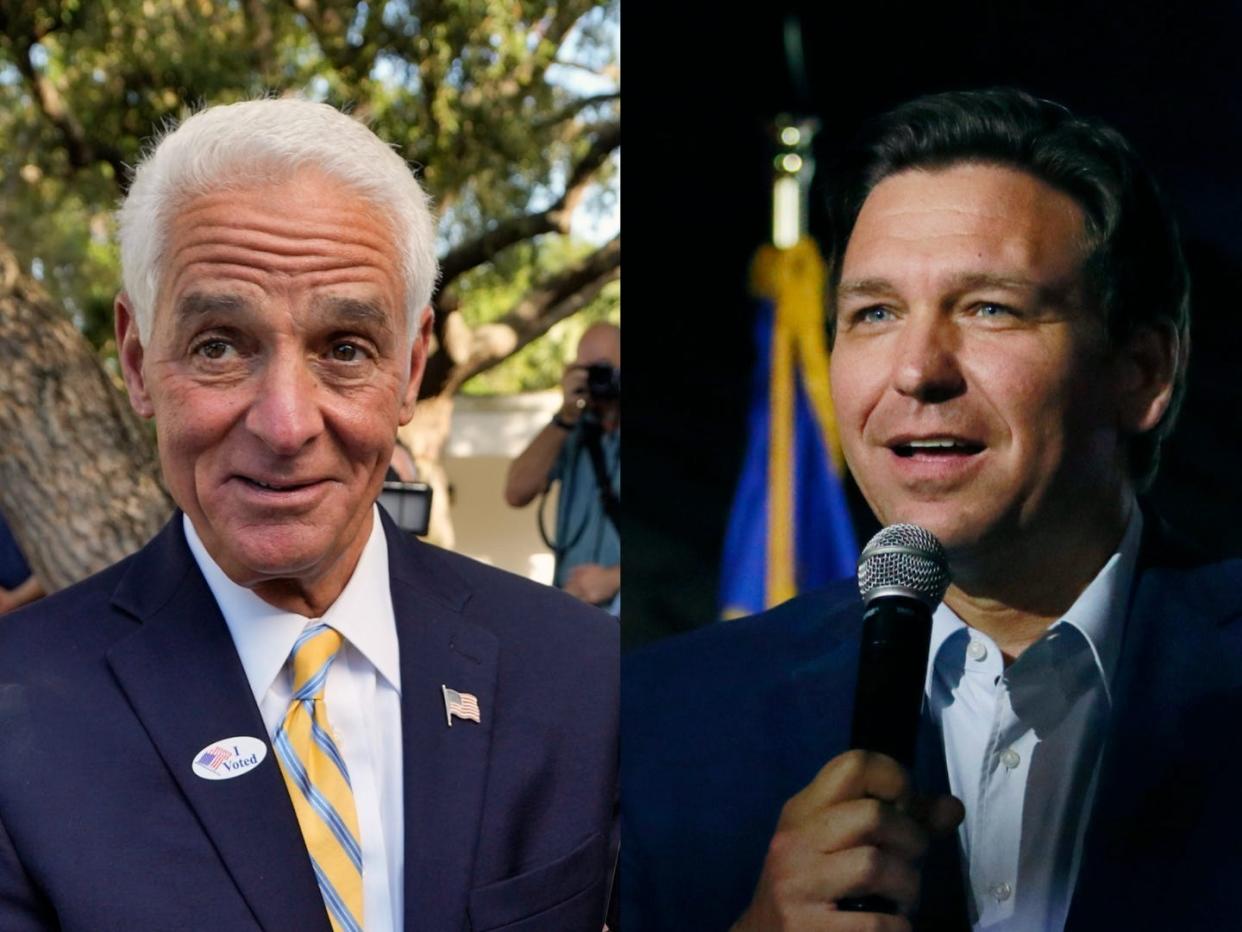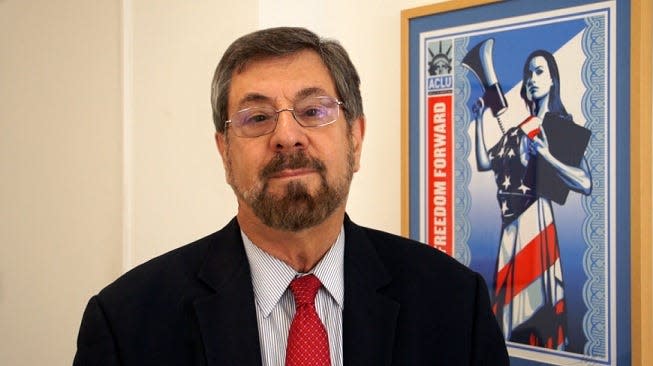Guest opinion: The right to vote in Florida -- a tale of two Republican governors

- Oops!Something went wrong.Please try again later.
- Oops!Something went wrong.Please try again later.
Let us try for a moment to block out the political noise to take a realistic look at the wave of changes to Florida elections.
Restoration of voting rights: When Charlie Crist was elected Governor in 2006 -- as a Republican -- Florida’s voter disenfranchisement was at its ugly zenith.
The lifetime disenfranchisement system was ramped up following our state’s enlistment in the failed Confederacy in order to take the vote from those formerly enslaved. By Crist’s election almost a century and a half later, approximately 1.6 million Floridians – one in 10 Floridians and more than one in five voting-age Blacks – lost their right to vote due to a felony conviction.
Restoration of voting rights was still possible by Executive Clemency, but that was rare, humiliating and arbitrary.
More: Commentary: Whose 'neglect of duty,' Gov. Ron DeSantis?
More: Guest opinion: Florida should warn swimmers when there’s poop in the water
Gov. Crist led the Cabinet to change the Rules of Executive Clemency to automatically restore voting rights for those completing a sentence for a non-violent felony. A partisan calculation might have led in another direction, but for Crist, this was an ethical imperative. Those who served their time deserved to be restored to full citizenship, he noted. As a result, hundreds of thousands of Floridians had their voting rights restored, an historic change that was quickly reversed by the next Governor, Rick Scott.
Ron DeSantis was elected Governor in 2018 – at the same election that voting rights supporters (including the Florida Rights Restoration Coalition and the American Civil Liberties Union) secured approval for a constitutional amendment that voters thought would put an end to Jim Crow disenfranchisement.
More than a million signatures were collected and the constitutional amendment was approved by almost 65%. But DeSantis, disingenuously claiming to be implementing the will of the voters, got the Legislature to require those released by the state first pay court fees, fines and restitution to qualify to vote, regardless of ability to pay.
The Legislature replaced the nation’s most extensive disenfranchisement scheme with the most unjust – what a thoughtful federal judge correctly labeled a “pay-to-vote” scheme.
And worse, the state acknowledges no obligation to tell people how much or whether they owe anything. Supervisors of Election send voter registration applications to the Secretary of State in Tallahassee to determine eligibility. But with no apparent inclination to create a statewide database to provide the needed information, we are likely to see more theatrics like the recent “gotcha” arrests of those who believed they were eligible to vote.
Election integrity: Florida had an election integrity problem, but it wasn’t about fraud. Following the embarrassment of the 2000 Election, then-Gov. Jeb Bush engineered the conversion from punch-card voting (remember the hanging chads?) to electronic paperless ATM-style voting. But that technology had its own problems -- principally undercounts and the inability to conduct meaningful recounts in disputed or close elections.

Gov. Crist rescued election integrity from the not-ready-for-prime-time ATM-style machines, replacing them with the paper ballots and optical-scan readers we now use. Since 2008, ballots have been reliably tabulated without undercounts or other problems.
Despite congratulations for a flawless 2020 election, Gov. DeSantis used unfounded concerns about election integrity to justify legislation creating more barriers to voting in 2021.
The 48-page law made a slew of changes, taking particular aim at voting-by-mail, shortening the time a voter remains on the list to automatically receive a mail ballot. (Democrats made extensive use of Vote-by-Mail during the pandemic.) The law also made it more difficult to use ballot drop boxes, requiring boxes to be located only at a county voting office or an early voting location and accessible only during early voting hours.
Voting accessibility: The Legislature, typically claiming to make elections more secure but always ready to gain partisan advantage, had shortened early voting hours. (Young and Black voters heavily use early voting.) The shortened hours plus excitement over the 2008 Election (Barack Obama was on the ballot) contributed to extremely long lines.
There were reports of elderly people fainting while waiting to vote. Then-Gov. Crist issued an Executive Order extending voting hours -- not just to let people in line vote, but extending hours at early voting sites.
More can be said about these episodes. Each involves nuanced issues of law, policy and technology.
Nevertheless, the record is clear that no governor in the modern era has done more to manipulate the rules governing elections to achieve partisan advantage than current Governor, Ron DeSantis.
And no governor – Democratic or Republican – has done more to expand participation and actually protect the integrity of elections, regardless of partisan impact and often despite the heated objections of party leaders, than former Governor Charlie Crist.
Howard L. Simon, Ph.D., served as Executive Director of the American Civil Liberties Union of Florida from 1997 – 2018. He is now President of the Clean Okeechobee Waters Foundation.
This article originally appeared on Fort Myers News-Press: The right to vote in Florida: a tale of 2 Republican governors

